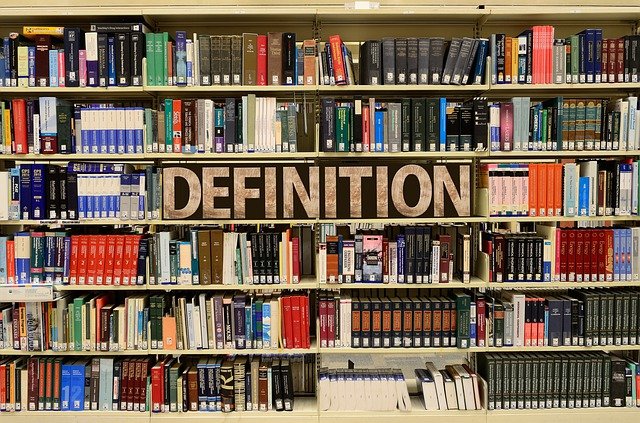
Divorce Definitions
If you are contemplating getting divorced or are already going through that process, you may encounter a lot of legalese and terminology that are unfamiliar with. Here is a short dictionary of some of the more common words.
I have arranged the list in the order you are likely to encounter these words, instead of alphabetically.
Petition for Divorce – this is the legal document that starts everything. The person who files for divorce files the Petition for Divorce and has it served on their ex-spouse.
Petitioner – The Person who files a Petition for Divorce and starts the legal proceedings.
Corollary Relief – Anything besides divorce requested by you in your Petition for Divorce. Examples include claims for child support or spousal support.
Affidavit of Service – A sworn statement signed by the person who served the Petition for Divorce on your ex-spouse. This is filed with the court and is used as proof that the other side has been formally notified of the court proceedings.
Respondent – The person who is served with your Petition for Divorce. The opposing party, Your ex-spouse.
Demand for Financial Disclosure – A formal legal document served on your ex-spouse demanding that they provide financial disclosure to you within a specified time. The purpose of this is to obtain necessary financial information to establish child or spousal support obligations.
Table Amount – The amount of child support that a person should pay according to the Manitoba Table of the Child Support Guidelines. Generally these guidelines set out the amount of child support to be paid based on one’s income.
Section 7 Expenses – These are expenses over and above the basic costs of raising a child and so not included in the Table Amount. Examples include daycare, educational expenses, medical costs, prescription costs. These expenses are usually shared proportionately between the parties based on their incomes.
Note Default or Noting Default – Once your ex-spouse is served with your Petition for Divorce they have a fixed length of time within which to respond and object to your claim. If they are served in Manitoba the deadline is 20 days after they are served. If they fail to file an Answer (see entry below) and you do not grant them an extension of time, then the Petitioner can “note default” which means that they can go to court and obtain a final judgment without any further notice to the Respondent.
Uncontested Divorce – A Divorce where the other spouse does not contest any of the claims made by you in your Petition.
Answer – A formal legal document filed in court by the Respondent objecting to any or all of the claims made by you in your Petition for Divorce. If an answer is filed then it means that the divorce will not be uncontested, unless you later reach a settlement with your ex-spouse.
Notice Withdrawing Opposition to Divorce – A formal legal document filed in court by the Respondent withdrawing their Answer and allowing the matter to be set down for a final divorce hearing.
Clearance Certificate or “the CDR” – A legal document obtained from the Central Divorce Registry confirming that neither your nor your spouse have started divorce proceedings elsewhere. A CDR certificate is needed before the matter can proceed to judgment.
Section 11 – The requirement by a Judge to satisfy themselves that proper arrangements have been made for the support of any children before granting a divorce. If there is inadequate support or insufficient financial disclosure to determine what should be paid, then the divorce will be denied or delayed.
Affidavit of Petitioner’s Evidence – A sworn document signed by the Petitioner and filed with the Court setting out the facts of the case and the grounds for divorce. This is the evidence upon which the Court relies in order to determine whether the divorce should be granted.
Divorce Judgment – The formal legal document signed by a Judge confirming that the divorce was granted and the marriage is terminated.
Corollary Relief Judgment – A separate formal legal document signed by a Judge setting out their ruling on all things besides the divorce such as child support.
Certificate of Divorce – An additional document which can be obtained from the Court 30 days after the granting of the divorce, confirming that no appeal has been initiated and that therefore the divorce is final. Until the 30 days have passed neither spouse is free to re-marry because theoretically an appeal might set aside the divorce.
There are of course other terms and words that you will encounter, which are beyond the scope of this short summary. We hope that this guide will help you understand what your lawyer is telling you about the process.
[/vc_column_text][/vc_column][/vc_row]







